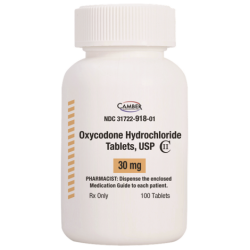-1060x400w.jpg)
The unpleasantness of anxiety can be described as a combination of fear and dread, or an unexplained sense of impending doom. Anxiety can manifest as anything from an upset stomach to heart palpitations to a nervous tension that permeates everything to a panic attack.
We're not referring to normal anxiety here; rather, we're referring to clinical anxiety, which can be both all-consuming and crippling. According to the Anxiety and Depression Association of America, anxiety is "persistent and excessive worry" where people can lose rational perspective and "expect the worst, even when there is no apparent reason for concern." When classified as a disorder.
One in every 13 people in the world has GAD, according to the WHO, and chronic or severe symptoms may be a sign of it. GAD affects nearly 40 million Americans. It's a good thing that doctors and healthcare providers can determine the best treatment options for you because they have effective therapies and medications at their disposal.
All of us can benefit from looking into natural remedies for anxiety, either as a stand-alone treatment or in conjunction with more conventional approaches (though if you are getting professional care, talk to your doctor first). Some are alterations in one's way of life that, over time, can help reduce anxiety, such as regular meditation, physical activity, and time spent in nature. Deep breathing and distraction techniques, on the other hand, can provide immediate relief from anxiety when the mind sends out an SOS.
We can train our brains to view life with a more balanced, less fearful perspective by learning the right skills and making lifestyle changes. Find out how to naturally and mindfully reduce anxiety by following these steps.
Stress can be combated in several ways, the most important of which is regular exercise.
Exercising can help relieve stress by putting your body through a lot of physical stress.
Regular exercise has the greatest impact on your health and well-being. Regular exercisers are less likely than non-exercisers to suffer from anxiety (1).
This is for a variety of reasons:
Exercise lowers stress hormones like cortisol, which are produced when you're under stress. There are also chemicals known as endorphins released when you do yoga, which help improve your mood and relieve pain naturally.
Stress and anxiety can have a negative impact on your ability to get a good night's sleep, which can be alleviated by regular exercise.
You'll feel more competent and confident in your body because of regular exercise, which in turn promotes mental health.
Find a physical activity that you enjoy, like walking, dancing, rock climbing, or yoga.
Repetitive movements of large muscle groups, such as walking or jogging, can be particularly stress-relieving.








-250x250.png)